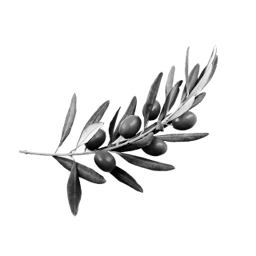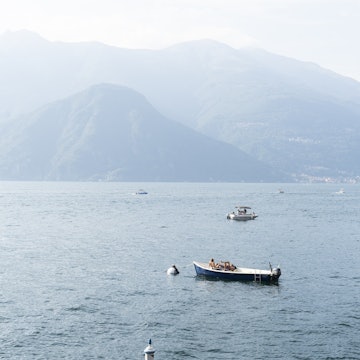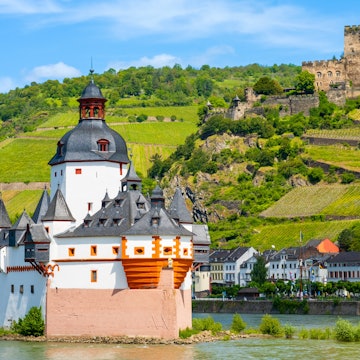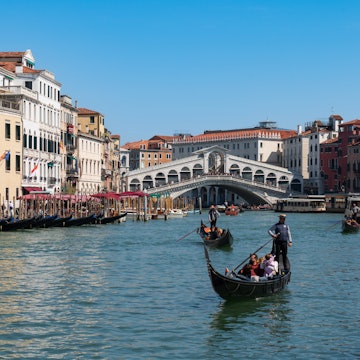

Choose the best time for your visit to Switzerland with this seasonal guide. Anna Nahabed/Shutterstock
Spend any length of time in Switzerland, and you’ll come to realize just how distinct the seasons are here and how well the country wears them. There really is no single best month to visit, the best time to go to Switzerland will depend on whether you want to ski, hike, take a dip in a lake or make the most of its colorful festivals.
Winter, with its snow-laden peaks, groomed pistes and bluebird days, is peak time for skiers and winter walkers. Summer draws visitors for its pleasantly warm temperatures, high alpine hiking trails and lake life. Spring and autumn are also appealing with cheaper flights, milder temperatures, quirky festivals and the chance to catch the countryside in flux. From the new bloom of alpine flowers in May and June to the fiery orange blaze of larch trees and vineyards in the fall.
If you're planning on when to visit based on accommodation prices, you won't find seasonal discounts in cities like Zürich and Geneva; rather, hotels are pricier Monday to Thursday when business people come to town. On the other hand, many hotels in mountain resorts shut from mid-October to mid-December during their slowest season, and are at their cheapest in summer.
Plan your Switzerland trip around your preferred activities and your budget, and you’ll find your own best time to visit this ever-changing country.

July to August is the time for hiking – or partying
Weather in Switzerland in summer: Peak summer in Switzerland is "tip-top", to borrow the Swiss-German phrase. Barring the odd storm, it’s nearly always warm and sunny (maximum daytime temperatures are around the mid-20s°C), though it can occasionally get very hot these days, meaning the best place to be is in the cooler air of the high mountains.
If it is the mountains that call you to Switzerland, there are a vast number of hiking trails in the Alpes Vaudoises, the Bernese Oberland or Graubünden, offering cow-strewn meadows, vertiginous views and glimpses of ibex, marmots and eagles. You'll need to book ahead for a dorm bed in a Swiss Alpine Club cabin – simple hostels strung across the Alps in glorious locations. You can also stay in one of the grandes dames of the Swiss mountains, such as the Rigi Kulm Hotel above Lake Lucerne or the Berghotel Schynige Platte overlooking Interlaken, two of the country’s longstanding mountain hotels.
If you're booking Swiss trains with panoramic routes (for example Glacier Express, Bernina Express, GoldenPass) make sure you get these sorted in advance during peak months. Trains run year-round but the scenery and daylight hours change with the seasons.
Road cyclists are spoiled for choice in summer, with the gruelling switchbacks of mountain passes including the Furka, Gotthard and Grimsel presenting the biggest challenges, while mountain bikers hitch their wheels to a ski lift in Verbier to tackle its downhill trails.
Summer is also party time in Switzerland. Check out big names in music at the Montreux Jazz Festival, the Gurten Festival near the Swiss capital, Bern and the huge techno festival Street Parade in Zürich.
Don’t miss Swiss National Day, August 1. Join in the celebrations by having brunch on a farm (booking ahead is essential), watching a city fireworks display or enjoying the wine, raclette and entertainment in any town or mountain village.

June to September is ideal for sampling lake life in Switzerland
Hanging out by a lake or river is another typically Swiss summer experience. Hardcore wild swimmers take to the lakes at any time of year, but you’ll find warmer water and more atmosphere in summer, when the lakeshores throng with people sunbathing and barbecuing.
Relax next to Lake Geneva as part of Vevey’s summer-long Dolce Riviera festival, swim around Bern in the fast-flowing River Aare, paddleboard on Lake Lucerne, dip in the River Rhine in Basel or hang out at a riverside badi (public swimming baths) in Zürich. If you’d rather be on the water than in it, summer is also peak season for the ferry companies, which offer trips on all the major lakes.

May (and September) offers Swiss charm without the expense
Weather in Switzerland in spring: Not as warm as summer, you can expect average highs of around 17-18°C in May (and cooler in April). Rainfall is not uncommon any time of the year, with about 10 to 12 rainy days a month. Pack accordingly.
But visiting Switzerland in shoulder seasons has its advantages. Not only is it less expensive with deals on flights and hotels, but the heat is less intense than in high summer.
Each shoulder season has a certain appeal. Come in May for blossoming trees, the start of the swimming season (many outdoor pools open in mid-May) and the very enjoyable caves ouvertes/cantine aperte (open cellars) weekends in the vineyards of Geneva, Vaud, Valais, Neuchâtel and Ticino.
With many of the mountain lifts still open and the weather remaining balmy well into the month, September is perfect for hiking or biking. Be sure to catch a désalpe/alpabzug, when the dairy cows, having spent their summers on the alpine pastures, parade down to the valley farms passing through villages en route – an excuse for the locals to eat Alpkäse (alpine cheese), drink wine and make merry. The best known is held in Charmey, near Gruyères.
Another September party is the grape harvest festival in Lutry, which celebrates the end of the wine-growing year in The Lavaux, the centuries-old vineyards between Lausanne and Montreux. The area also makes for pretty autumnal hiking, with wine-tasting spots en route.
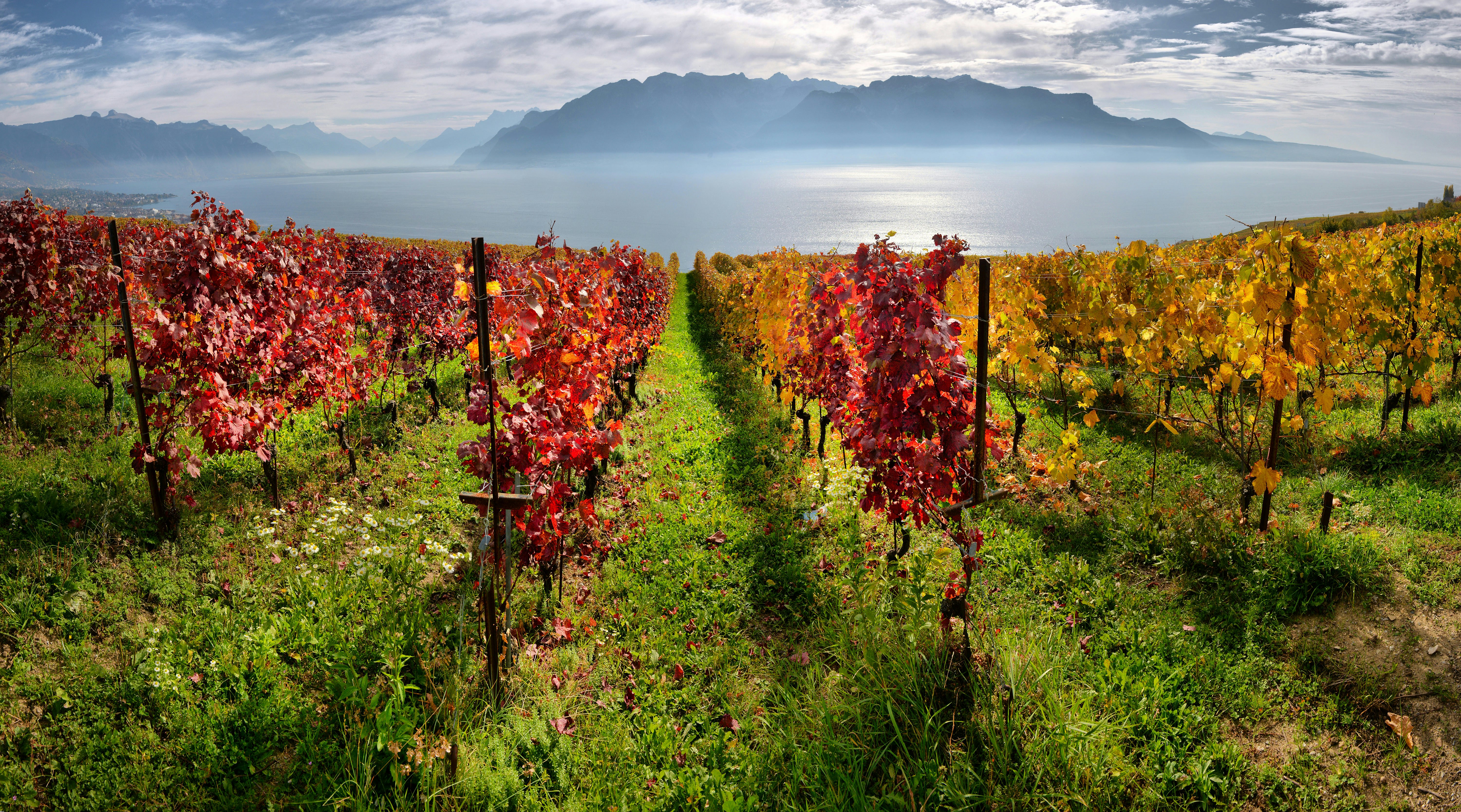
October and November are rich with fall colors and food events
Weather in Switzerland in autumn: While grapes are harvested and larch trees burn gold, fall is the clandestine "best season" in local lore. October is still reasonably mild, with top temperatures in the mid-teens, but by November you'll find a frosty high of 8°C or 9°C the norm.
There’s a reason why this is the cheapest time to visit Switzerland. With the mountain lifts and many hotels closed, villages can be sleepy and the weather unpredictable. But if you get a sunny day and use the bus or train to reach the start of a hike, you’ll be rewarded with a blaze of color in the trees that most visitors never see.
Autumn is also a great time to eat out in Switzerland, with many restaurants serving game meats with traditional accompaniments (chestnuts, sprouts, red cabbage, berries and Spätzli – a sort of Swiss pasta). A number of food events are also worth exploring, including two in the Swiss Jura: the truffle market in Bonvillars, and the Feast of St Martin in Porrentruy, where you can fill your belly with as much pork as you can eat.

December to April is best for snow seekers and carnival-goers
Weather in Switzerland in winter: Daytime average highs hover around 4°C max in winter. Swiss ski resorts with slopes above 2000m are snow-sure between December and April, but a changing climate is making snow cover at lower altitudes less certain. Download the MéteoSuisse app to check weather forecasts and snowstorm warnings.
Snowsports dominate winter. Skiers and snowboarders love the long groomed slopes and off-piste terrain of big-name resorts such as Zermatt, Verbier and Laax, but with a lift in almost every mountain village, Switzerland has something for all levels and budgets. Meanwhile, dedicated trails for winter walking, cross-country skiing and tobogganing mean winter isn’t just for powder hounds.
In February and March, carnival season brings traditional guggenmusik bands (brass bands playing oompah-style music) to many towns and cities. The best-known carnival is Basel’s three-day street party, Fasnacht. Darker traditions abound, too: visit the Lötschental for its parade of fearsome, mask-wearing Tschäggätta, and the Valais village of Evolène for a carnival dominated by fur-clad monsters and giant straw-people.
Take your Switzerland trip with Lonely Planet Journeys
Time to book that trip to Switzerland
Lonely Planet Journeys takes you there with fully customizable trips to top destinations–all crafted by our local experts.

